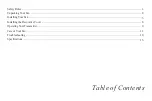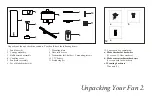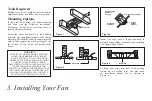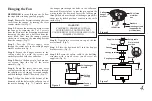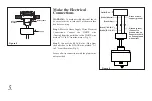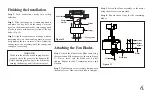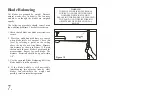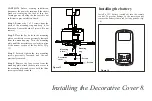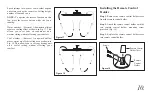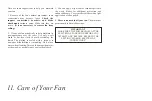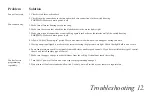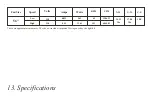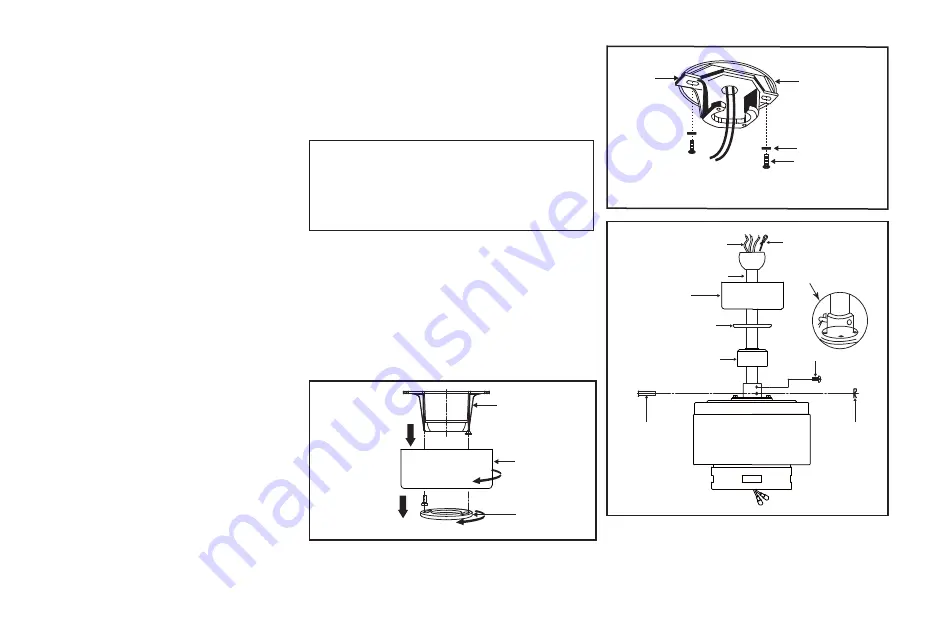
4.
Hanging the Fan
REMEMBER
to turn off the power. Follow
the steps below to hang your fan properly:
Step 1.
Remove the decorative canopy bottom
cover from the canopy by turning the cover
counter clockwise.(Fig. 5)
Step 2.
Remove the mounting bracket from
the canopy by removing the 1 of 2 screws
from the bottom of the mounting bracket and
loosening the other one a half turn from the
screw head. Next, turn the canopy counter
clockwise to removing the mounting bracket
from the canopy. (Fig. 5)
Step 3.
Pass the 120-volt supply wires
through the center hole in the ceiling hanger
bracket as shown in Fig. 6.
Step 4.
Secure the hanger bracket to the
ceiling outlet box with the screws and
washers provided with your outlet box.
Step 5.
Remove the hanger pin, lock pin and
set screws from the top of the motor
assembly. (Fig. 7)
Step 6.
Route the safety cable and wires
exiting from the top of the fan motor through
the coupling cover, canopy cover and canopy
and then through the ball / downrod. (Fig. 7)
Step 7.
Align the holes at the bottom of the
downrod with the holes in the collar on top of
the motor housing (Fig. 7). Carefully insert
the hanger pin through the holes in the collar and
downrod. Be careful not to jam the pin against the
wiring inside the downrod. Insert the locking pin
through the hole near the end of the hanger pin until it
snaps into its locked position, as noted in the circle
inset of Fig. 7.
WARNING
FAILURE TO PROPERLY INSTALL
LOCKING PIN AS NOTED IN STEP 7
COULD RESULT IN FAN LOOSENING AND
POSSIBLY FALLING.
Figure 6
Figure 7
Ceiling
hanger
bracket
Mounting screws
(supplied with
electrical box)
CUL Listed
electrical
box
120V Wires
Washers
Supply wires
Downrod
Hanger pin
Lock pin
Set screws
Canopy
Canopy cover
Coupling cover
Pin in locked
position
Step 8.
Tighten two set screws on top of the fan
motor firmly. (Fig. 7)
Step 9.
Place the downrod ball into the hanger
bracket socket. (Fig. 8)
Step 10.
Secure the safety cable to the building
structure with a wood screw. (wood screw not
supplied) (Fig. 8)
Figure 5
Ceiling hanger
bracket
Ceiling
canopy
Canopy
cover
Safety cable


